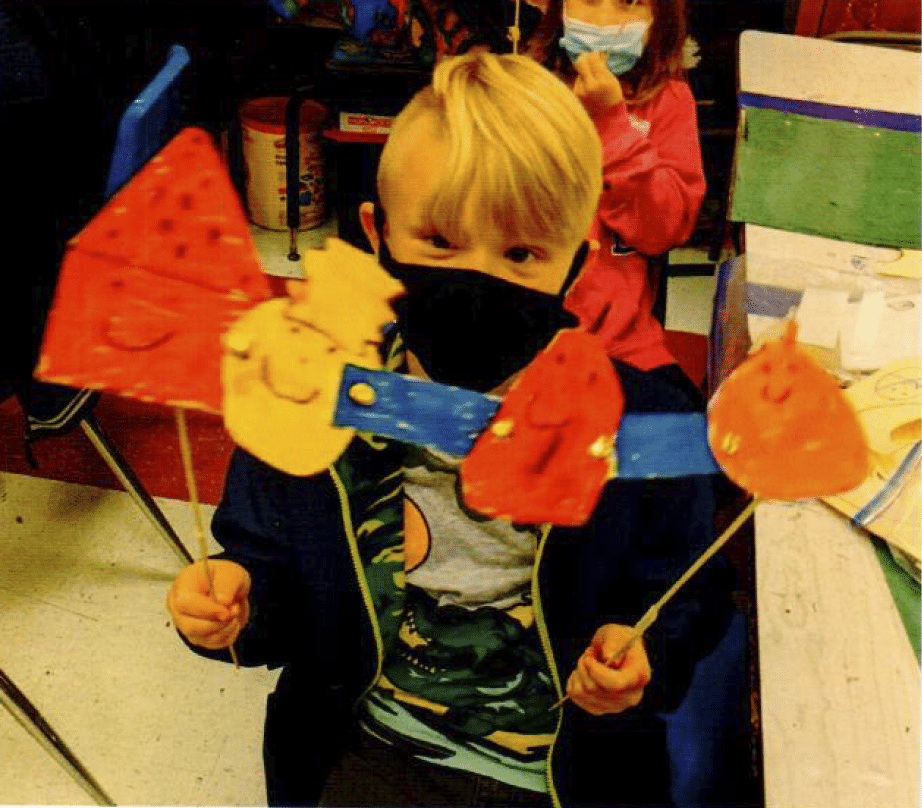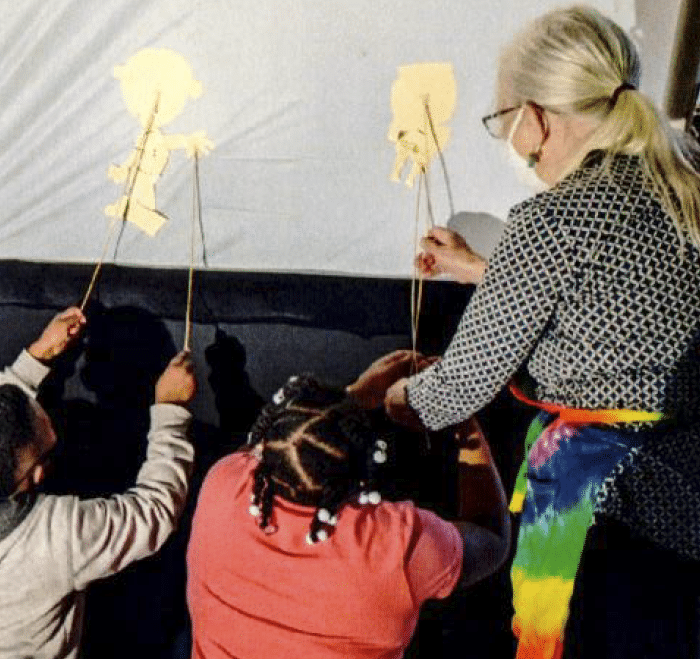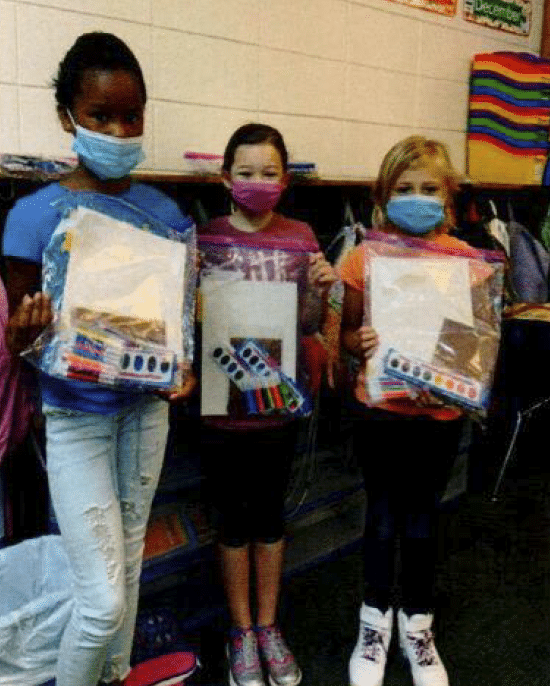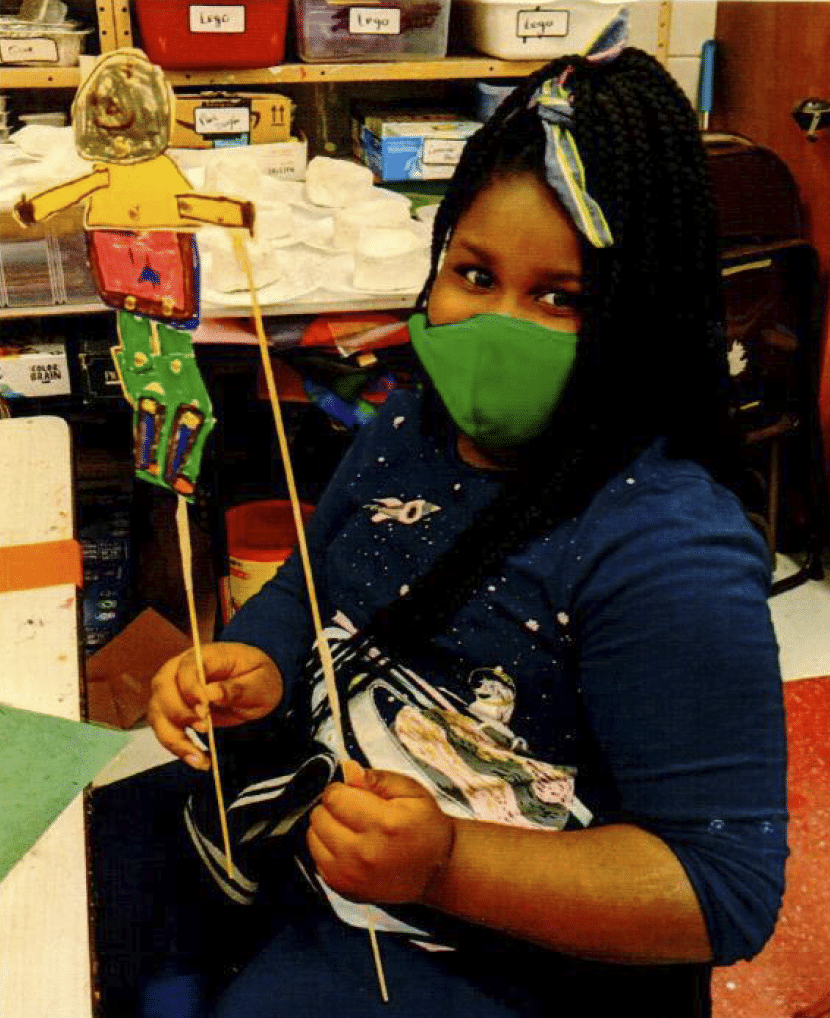Literacy Emerges From the Shadows
Print This PostBy Carolyn McKinley
President, Meriwether County Chamber of Commerce and Tourism
Co-Chair, Get Meriwether Reading Campaign

Literacy learning can sometimes be found in unexpected places—even in the shadows of puppets.
As Meriwether County continues our Get Georgia Reading journey, our local team has adopted a vigilant attitude when seeking additional avenues to reach children in meaningful ways. One of the more robust and energizing strategies has been in philosophically merging the arts with our literacy initiative.
The county has used several arts-related grants it received to emphasize the impact of merging the arts with literacy. Meriwether used funds this year to contract with the Columbus-based nonprofit FABArts, Inc. Professional teaching artist Rick McKnight and professional puppeteer Claire Ritzler worked with our second graders in both elementary schools.
This work was inspired by the book Lily Brown’s Paintings, written by Angela Johnson and illustrated by E.B. Lewis, which was purchased for every second grader. A community volunteer was engaged to read the book via Zoom, following a protocol designed to maximize the interactivity and learning opportunities for the children.
After that, McKnight and Ritzler led the second graders through a series of puppetry workshops, introducing them to the world of puppetry and offering them an opportunity to make their own shadow puppet. This culminated in a shadow puppet show at the end of the four-day residency experience.

The residency was designed to encourage a love and enthusiasm for reading, and the second graders explored Lily Brown’s Paintings through the words and illustrations. While the residency focused on language arts and theater, an integrated curriculum approach also incorporated science, math, visual arts, and music.
Lily Brown is a young artist who paints the world she sees in her vivid and colorful imagination. Second graders were given an opportunity to explore Lily’s painted world through shadow puppetry. Students sketched out plans for their puppets and were provided all supplies to create it through hands-on learning.
Modifications had to be made to the program design due to COVID-19. The children were originally going to be transported to an off-site location to perform the puppet show, so funding for that was reallocated to purchase painting and drawing supplies to create a take-home art kit, which also included letters to the parents and guardians and materials to create a journal.

One teacher said in the post-event evaluation, “Our students had a blast as they created unique shadow puppets and were able to perform for their peers and other teachers. Students went home daily and shared what they learned with their parents and were excited about returning to school and working on their projects.”
One of our goals with this series of projects is to implement systemic change within the teaching curriculum so teachers can more completely embrace the arts and find creative ways to integrate them into other aspects of their curriculum.
Another teacher said, “I can’t wait to add shadow puppets to my third-grade curriculum. I look forward to applying Ms. Ritzler’s techniques with more students,” while another said, “My co-teacher was impressed with the entire process and would like to co-teach a lesson next year that incorporates arts, language arts, and musical instruments.”
The positive effects of including the arts in education have been well documented, including an enhancement of creative expressiveness, literacy, and cognitive processing. We believe that art is an essential tool in helping students to improve creative and critical thinking skills, accelerate brain development and literacy acquisition, and elevate self-esteem.
We want to influence our key decision-makers and leaders in their understanding that the arts can be vital part of a larger economic and cultural ecosystem. We believe that infusing arts into the community, and especially into the public schools, will have a powerful and positive impact on the vibrancy and sustainability of our communities. We expect that this arts foundation will accelerate learning and especially literacy in our schools—and lead to a more skilled and educated citizenry.

Contact:
Krystin Dean
GaFCP Communications Specialist
706-897-4711
krystin@gafcp.org
Follow us on Twitter: @gafcpnews
Connect with us on Facebook.
